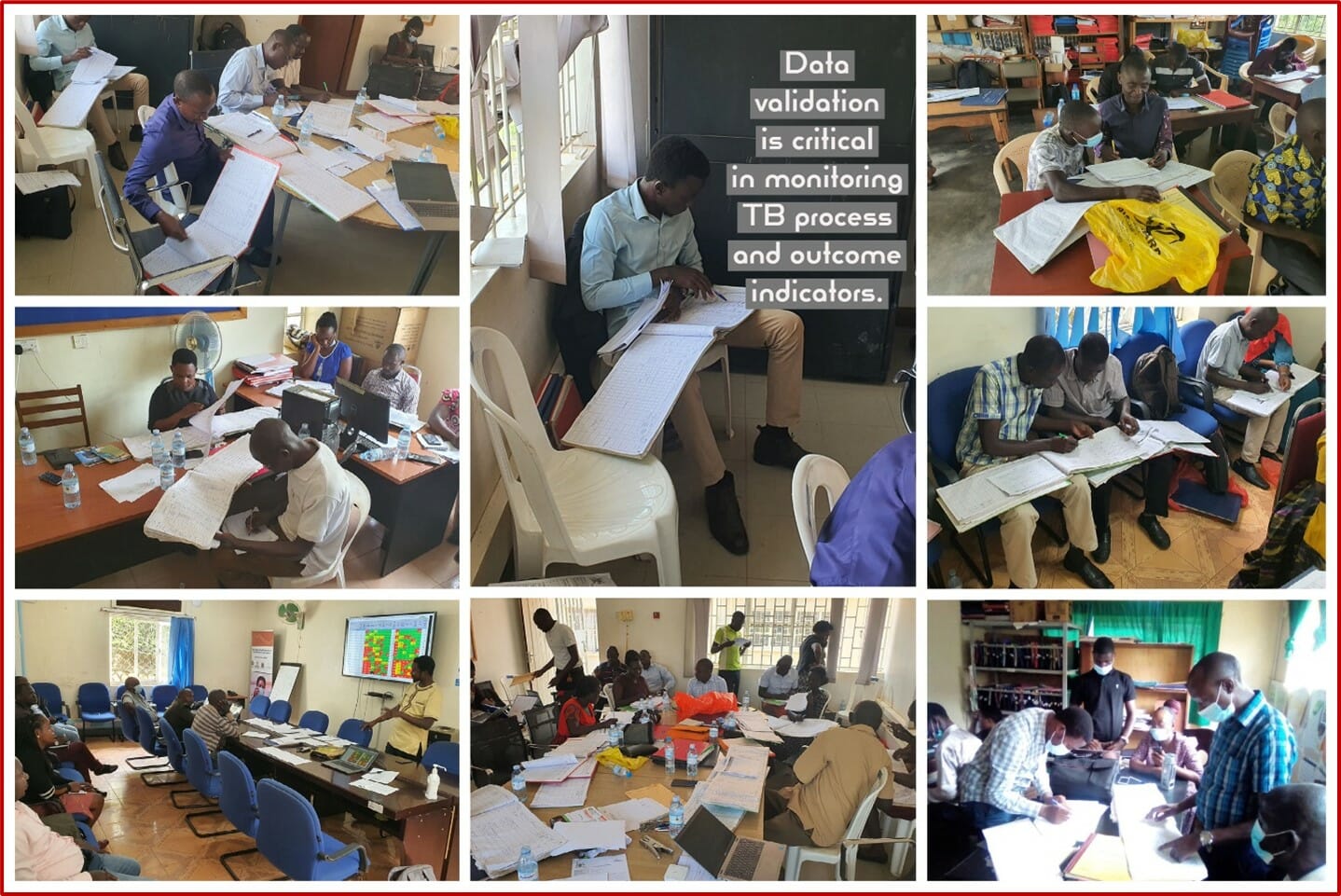
USAID LPHS-E Activity works with district leaders to provide quality comprehensive HIV and TB services to the community in 15 districts and Mbale City to screen, identify, link, and monitor TB patients at the facility and community levels.
USAID LPHS-E is supporting 191 health facilities in both Bukedi and Bugisu regions through the health systems strengthening approach in partnership with the leadership in the districts and other implementing partners in the region like USAID Regional Health Integration to Enhance Services in Eastern Uganda (RHITES-E), USAID Health Activity, Mbale Regional Referral Hospital under the G2G mechanism and USAID Local Service Development Activity.
The Project provides key interventions in TB programming at the facility and community levels. We have participated in door-to-door screening through the CAST TB campaign, and continue to support systematic contact tracing. Since October 2021, the Project has supported facilities to identify over 6000 TB cases in both Bukedi and Bugisu regions cumulatively.
In collaboration with USAID RHITES-E and districts in the region, USAID LPHS-E has supported the TB sample transportation network which hosts seven lab hubs in Mbale Regional Referral Hospital, Pallisa, Tororo, Kapchorwa, and Bududa general hospitals and Budadiri HC IV.
We support the TB diagnostic and treatment units in the region to submit quality orders for laboratory and TB commodities. In addition, we monitor regional stock and facilitate the redistribution of commodities according to need.
USAID LPHS-E supports health workers to timely monitor TB patients on treatment through prompt follow-up of missed appointments and reminders for drug pick-ups.
We work with CSOs and VHTs to deliver TB drugs to patients in hard-to-reach areas. As a result of these efforts, TB treatment success rate has improved in January 2022 to December 2022 from 88% to 90.7% and from 82.9% to 86.6% for Bugisu and Bukedi regions in the previous calendar year.
USAID LPHS-E supports 17 GeneXpert sites and seven TrueNat and TB Lamp sites to offer molecular TB diagnosis through referral and onsite testing of sputum samples. This support is geared towards improving drug-resistant case identification. The Activity also supports the districts to link patients diagnosed with drug-resistant TB to the treatment site located in Mbale Regional Referral Hospital.

USAID LPHS-E Activity follows the already established QI structures in the country to implement quality improvement initiatives in TB care. Together with the national program and the USAID TB-Activity, LPHS-E supports drug treatment units in the region to participate in the national TB/HIV collaborative activities with the aim of improving TB case detection and treatment outcomes.
The Activity in collaboration with the district health offices supports periodic TB data collection as per the Ministry of Health weekly, monthly, quarterly, and annual schedules. The support extends to monthly and quarterly TB data validation meetings, cleaning, and performance review meetings. The Activity supports the District Health Office (DHO) office to conduct TB data quality assessments to address any data challenges at health facilities.




Comments (0)